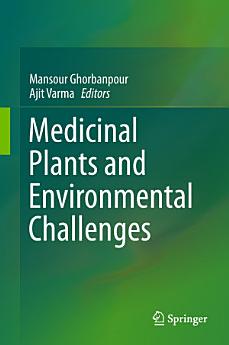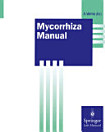Medicinal Plants and Environmental Challenges
Kuhusu kitabu pepe hiki
In recent years, interest has grown in the use of bioactive compounds from natural sources. Medicinal and aromatic plants constitute an important part of the natural environment and agro-ecosystems, and contain a wealth of chemical compounds known as secondary metabolites and including alkaloids, glycosides, essential oils and other miscellaneous active substances. These metabolites help plants cope with environmental and/or external stimuli in a rapid, reversible and ecologically meaningful manner. Additionally, environmental factors play a crucial role in regulating the metabolic yield of these biologically active molecules. Understanding how medicinal plants respond to environmental perturbations and climate change could open new frontiers in plant production and in agriculture, where successive innovation is urgently needed due to the looming challenges in connection with global food security and climate change. Readers will discover a range of revealing perspectives and the latest research on this vital topic.
Kuhusu mwandishi
Mansour Ghorbanpour, Ph.D.
Mansour Ghorbanpour is an Associate Professor at the Department of Medicinal Plants, Faculty of Agriculture and Natural Resources, Arak University, Arak, Iran. He holds a B.Sc. (1997), an M.Sc. (2003) and a Ph.D. (2011) from the University of Tehran, Karaj, Iran. Dr. Ghorbanpour has been a visiting scholar to the Nutrient Uptake and Toxicity Stress (NUTS) group at the University of Western Australia, Australia. His research interests include environmental stresses and plant responses, phytonanotechnology, bioavailability of emerging contaminants, and plant metabolism. He also has previous experience in beneficial soil microorganisms and biosynthesis pathways for secondary metabolites.
To date, Dr. Ghorbanpour has published over 80 journal articles and 6 books. In addition, he serves as an editor for a number of international journals, including the Journal of Diseases and Medicinal Plants and the International Journal of Traditional and Herbal Medicine. Lastly, he has served as a reviewer for other scientific journals such as Natural Product Research, Carbon, Journal of Medicinal Plants, Journal of Hazardous Materials, Journal of Essential Oil Bearing Plant, and Canadian Journal of Microbiology.
Ajit Varma, Ph.D.
Ajit Varma completed his PhD at Allahabad University and is a former Professor, School of Life Sciences, Jawaharlal Nehru University, India. Presently, he is the Distinguished Scientist and Professor of Eminence at the Amity Institute of Microbial Technology; Pro-Vice Chancellor, Ritnand Balved Education Foundation; and Vice Chairman of Amity Science, Technology and Innovation Foundation at Amity University in Uttar Pradesh, India. He has published more than 374 papers and 87 books. Dr. Varma is Fellow of the Alexander-von-Humboldt Society, Germany, elected Fellow of the National Academy of Agricultural Sciences and Fellow of the Microbiology Society of India.
Ajit Varma is also a series editor of the Springer series “Soil Biology” http://www.springer.com/series/5138.






